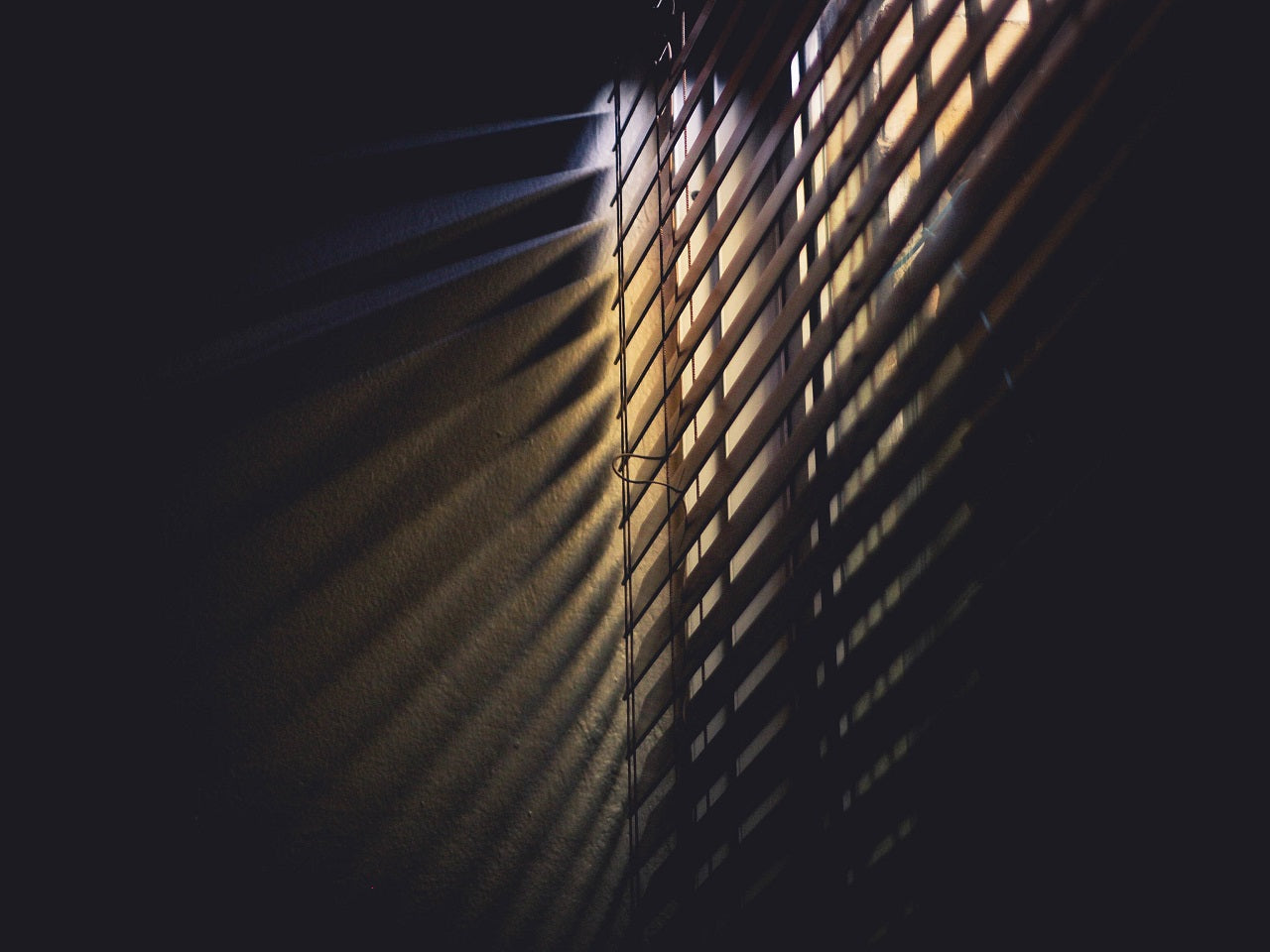“I have had extreme photophobia for a year. I am now able to function in the house with glasses — but blinds are down. At night, I use low wattage incandescent bulbs with dimmers and 25 watt amber lights in lamps that diffuse light. When I go out I wear two pairs of sunglasses and a wide-brimmed hat. Fluorescent lights are deadly to me causing headaches and agitation.” -Email to Axon Optics
Are you dimming the lights or even wearing sunglasses indoors? It’s time to cut it out. Here’s why.
You’ve no doubt seen rock stars or sports celebrities wearing sunglasses in all situations, indoors and out. Maybe they don’t want to be recognized. Maybe they think they look cool. And sure, what looks good on J-Lo, LeBron or the random Kardashian certainly looks good on you, but that doesn’t mean it’s good for your eyes over the long term.

The truth is that most people who wear sunglasses indoors aren’t rock stars, but rather people who are sensitive to light. Fluorescent lights, computer screens, LEDs, or sunlight bouncing off of office buildings can be uncomfortable, irritate your eyes and cause them to water, or trigger headaches or migraine.
Light Sensitivity is a Problem. But Wearing Sunglasses Indoors Isn’t the Solution.
When someone with light sensitivity, or photophobia, visits their ophthalmologist, their chief complaint is likely an intolerance for artificial light sources such as fluorescent office lighting or computer monitors. They are often — but not always — less sensitive to natural light, until they’re faced with a very reflective surface such as cars or snow.
There may be no irregularities in the eye exams of these patients. However, their sensitivity to light affects their daily lives both at work and at home. They may, for instance, feel the need to wear sunglasses inside the office or at home, where the lighting causes headaches or other discomfort. While wearing sunglasses, dimming lights, and closing blinds may provide some feeling of relief, this is not a permanent solution. Why?
Is Wearing Sunglasses Indoors Bad for Your Eyes?

Yes, wearing sunglasses indoors can be harmful. A 2015 study published in Elsevier Survey of Ophthalmology concluded that “the use of sunglasses indoors must be strongly discouraged. By wearing dark sunglasses indoors, patients are dark adapting their retinas and aggravating their sensitivity to light.”
In other words, when you dim your environment, you are actually training your eyes to adapt to darkness. While the darkness may offer some short-term relief, over the long haul, your eyes become even more sensitive to normal lighting conditions. Entering a room under normal light can begin to feel like walking out of a dark movie theater and into the afternoon sun. Since you can’t always control how much light is in the room, this is bound to cause you discomfort when you leave home.
Not All Light is Created Equal
Neuro-ophthalmologist Dr. Bradley Katz says, “Right now, we really don’t have any pharmacologic treatment for sensitivity to light. What we do have are optical treatments, or natural treatments. So there are ways that we can reduce the amount of painful light coming into your eye, so you can be more comfortable.”
When you suffer from photophobia, your primary concern is getting relief, so your natural reaction is to turn off the lights or put on sunglasses. However, not all lighting is causing you discomfort. Some types of light on the spectrum are more likely to trigger sensitivity than other types. That’s why — instead of wearing sunglasses indoors to block all types of light — it’s better to filter only the offending light.
This can be accomplished through Axon Optics with Avulux® Migraine and Light Sensitivity Lenses. They're the only clinically proven lenses for people with migraine and light sensitivity, absorbing up to 97% of the most harmful blue, amber, and red light while allowing over 70% of the soothing green light through.
The result? You experience the same feeling of relief as wearing sunglasses, but you won’t be dark adapting your eyes to become even more light sensitive over time.
The above study states that light-sensitive patients, “should be encouraged to transition to the use of FL-41 or other tints for indoor light sensitivity.” However, the study also noted that, “there is no need to restrict the use of sunglasses outdoors in these patients.”
The bottom line? Instead of wearing sunglasses indoors or eliminating sources of light, try light filtering lenses that provide relief without causing increased sensitivity.





